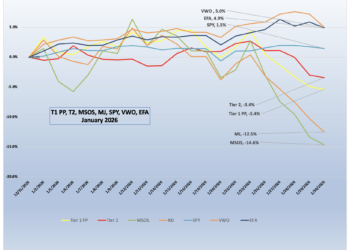Another cannabis giant in California has entered receivership amid a growing wave of beleaguered pot companies crumbling under debt.
Gold Flora Corp. (GRAM) filed for receivership March 27 in Los Angeles County Superior Court, West District. On April 2, it announced that Richard Ormand was named receiver of the company. Ormand previously served as receiver of Medmen where he oversaw the liquidation of the failed company’s parts.
The receivership was necessary after the company’s 2023 merger with The Parent Company left it with crushing liabilities, according to founder and CEO Laurie Holcomb.
“This was a difficult but correct decision to make for all stakeholders,” Holcomb said in a statement. “While Gold Flora remains a leading operator and retailer in the cannabis market in California with over $100 million in annual revenues, the liabilities on our balance sheet, many of which are due to lawsuits we inherited with the TPCO business combination, forced us to file for a voluntary receivership that is necessary to achieve an orderly sale of the business.”
The company said that it plans to continue operating its 16 active dispensaries and 107,000 square feet of cultivation canopy. That total canopy is split between three facilities in Desert Hot Springs and two in San Jose.
“We believe Gold Flora’s business remains valuable and sound, but receivership is our only option to sell the business as a going concern as opposed to seeing it broken up by different creditors, which we believe is not in the best interest of any stakeholder,” said Holcomb.
The notification said that the company anticipated $124.77 million in revenue for 2024, up from $90.96 million in 2023. The increase in revenue, which the company says was largely driven by the launch of its Gramlin line of flower and live rosin vapes, was not enough to close the liability of growing debt.
Gold Flora’s most recent quarterly report, which covered the third quarter 2024, was released on Nov. 14. By Sept. 30, the company had $209.7 million in assets, with $273.1 million in total liabilities.
Parent Co. merger brings more liabilities than cash
Subversive Capital Acquisition Group scooped up Caliva and Left Coast Ventures at the end of 2020, combining all three companies under newly formed TPCO Corp., known as The Parent Company. Famed rapper-turned business mogul Jay-Z was chief visionary officer at Caliva at the time, and he continued that role at TPCO.
The Parent Company owned Jay-Z’s Monogram brand of cannabis until it restructured the partnership deal with Jay-Z’s Roc Nation on Jan. 5, 2023. Under the new deal, Roc Nation returned a portion of its shares in TPCO and relinquished future equity payments from the company. TPCO retained eight years of licensing rights to the Monogram brand.
A month after the restructuring, TPCO announced an all-stock merger with Gold Flora forming the New Parent Company, in which Gold Flora owners would control 51% of outstanding common equity to TPCO’s 49%.
Gold Flora was hurting for cash when it decided to merge with The Parent Company, according to Gold Flora’s petition for dissolution and receivership. One of the company’s prospective investors backed out of a $20 million loan in 2022, leaving Gold Flora in need of a cash-flush partner. Gold Flora believed the merger with TPCO, which was completed on July 10, 2023, would provide $80 million in available liquidity. But in reality, that figure was closer to $33 million due to unpaid bills from TPCO and prior lawsuits that Gold Flora inherited in the deal.
“Collectively, the GFL (Gold Flora LLC) Parties are insolvent, or in imminent danger of insolvency, facing what seems to be a never-ending onslaught of legacy litigation as a result of the previous acquisition of another California based publicly traded cannabis company,” said the 11-page petition. “It is not only presently impracticable but nearly impossible for the GFL Parties to carry on their businesses in conformity with their articles of organization or operating agreements, and a receiver is necessary to effectuate an orderly plan of dissolution.”
The petition notes that Gold Flora has more than $52 million in secured and unsecured debt, that there are currently about $55 million in claims from litigation, and over $60 million to unsecured creditors for goods, services and real estate leases.
Cannabis receiverships on the rise
Innovative Industrial Properties Inc. (IIPR), which specializes in leasing property to cannabis operators, noted in an 8-K filing on March 28 that Gold Flora was in default of a $1.7 million lease. The filing also noted lease defaults from cannabis companies 4Front Ventures (FFNTF) at $9 million, and TILT Holdings (TLLTF) at $2.4 million.
Hilary Bricken and Michael Brandess, attorneys with Husch Blackwell, argued back in November that cannabis receiverships would increase.
They referenced reports from last fall that suggested a wave of debt was coming to major cannabis operators, based on their public filings. Bricken and Brandess suggested that wave could be even larger when considering private companies that are not obligated to publicly disclose their finances.
Receiverships will likely be a common solution considering that cannabis operators do not have access to federal bankruptcy protection.
Bricken declined to comment on Gold Flora, as her law firm is involved in the company’s receivership.
Frank Segall of Blank Rome previously told CRB Monitor News that restructurings and receiverships were on the rise among legal cannabis companies. Segall is currently representing Gold Flora as it enters into receivership. He did not respond to a request for comment.











